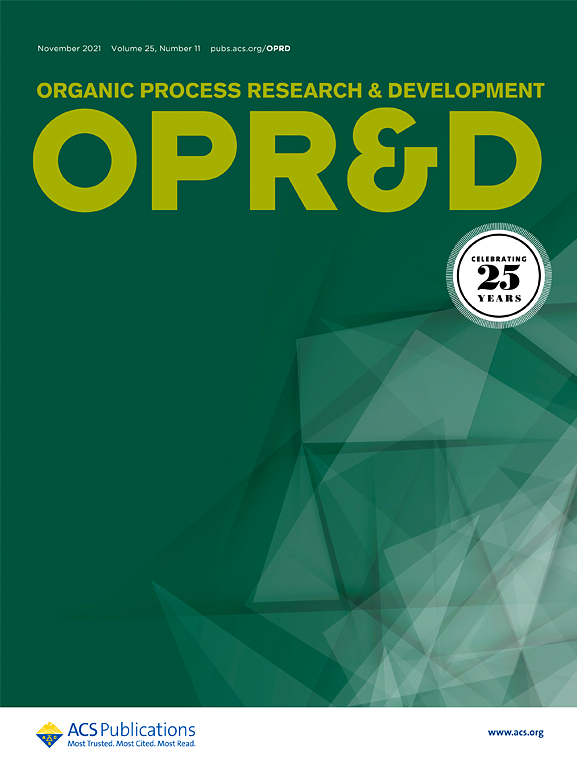入厂原材料的质量控制不仅限于特性和纯度:默克近期原料药生产工艺案例研究
IF 3.1
3区 化学
Q2 CHEMISTRY, APPLIED
引用次数: 0
摘要
活性药物成分(api)的稳健生产工艺的发展对于确保安全有效的药物供应至关重要。实施全面的控制策略,包括来料的质量控制,是实现这一目标的关键因素。本文介绍了最近默克原料药生产路线的几个例子,其中原材料中的杂质以各种方式影响工艺,包括产生新的工艺杂质,危害工艺安全并对反应容器造成损害,并且(有时出乎意料地和违反直觉地)抑制工艺杂质的形成。在所有这些例子中,分析表征在识别这些杂质并使其控制以确保一致的工艺性能和产品质量方面起着关键作用。本文章由计算机程序翻译,如有差异,请以英文原文为准。

Quality Control for Incoming Raw Materials Beyond Identity and Purity: Case Studies from Recent Merck API Manufacturing Processes
The development of robust manufacturing processes for active pharmaceutical ingredients (APIs) is paramount to ensure a supply of safe and effective medications. Implementation of a holistic control strategy, including quality control of incoming raw materials, is a key element in meeting this goal. This paper describes several examples from recent Merck API manufacturing routes, in which impurities in raw materials affected the processes in various ways, including giving rise to new process impurities, jeopardizing process safety and causing damage to reaction vessels, and─sometimes unexpectedly and counterintuitively─suppressing formation of process impurities. In all of these examples, analytical characterization plays a critical role in identifying these impurities and enabling their control to ensure consistent process performance and product quality.
求助全文
通过发布文献求助,成功后即可免费获取论文全文。
去求助
来源期刊
CiteScore
6.90
自引率
14.70%
发文量
251
审稿时长
2 months
期刊介绍:
The journal Organic Process Research & Development serves as a communication tool between industrial chemists and chemists working in universities and research institutes. As such, it reports original work from the broad field of industrial process chemistry but also presents academic results that are relevant, or potentially relevant, to industrial applications. Process chemistry is the science that enables the safe, environmentally benign and ultimately economical manufacturing of organic compounds that are required in larger amounts to help address the needs of society. Consequently, the Journal encompasses every aspect of organic chemistry, including all aspects of catalysis, synthetic methodology development and synthetic strategy exploration, but also includes aspects from analytical and solid-state chemistry and chemical engineering, such as work-up tools,process safety, or flow-chemistry. The goal of development and optimization of chemical reactions and processes is their transfer to a larger scale; original work describing such studies and the actual implementation on scale is highly relevant to the journal. However, studies on new developments from either industry, research institutes or academia that have not yet been demonstrated on scale, but where an industrial utility can be expected and where the study has addressed important prerequisites for a scale-up and has given confidence into the reliability and practicality of the chemistry, also serve the mission of OPR&D as a communication tool between the different contributors to the field.

 求助内容:
求助内容: 应助结果提醒方式:
应助结果提醒方式:


